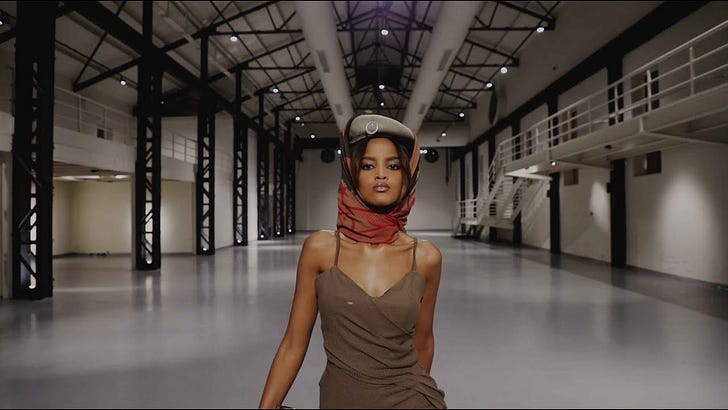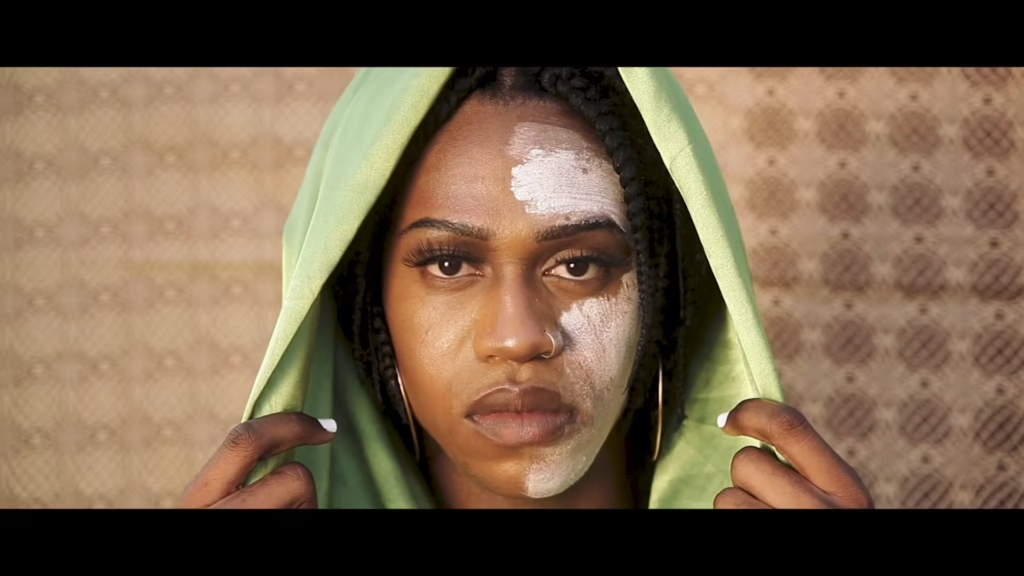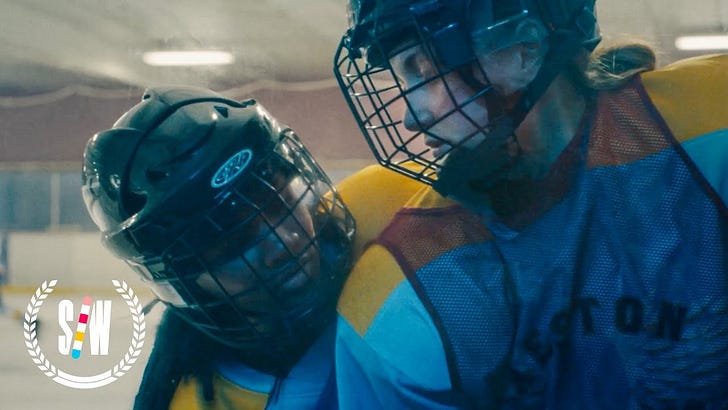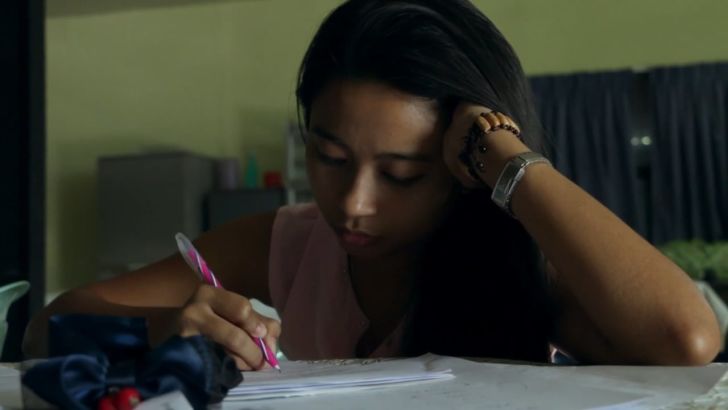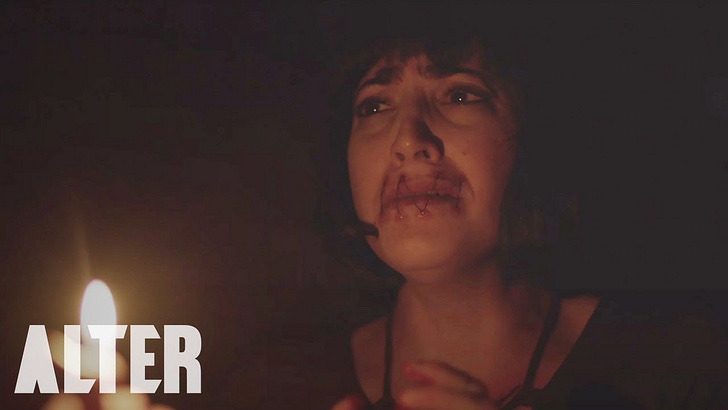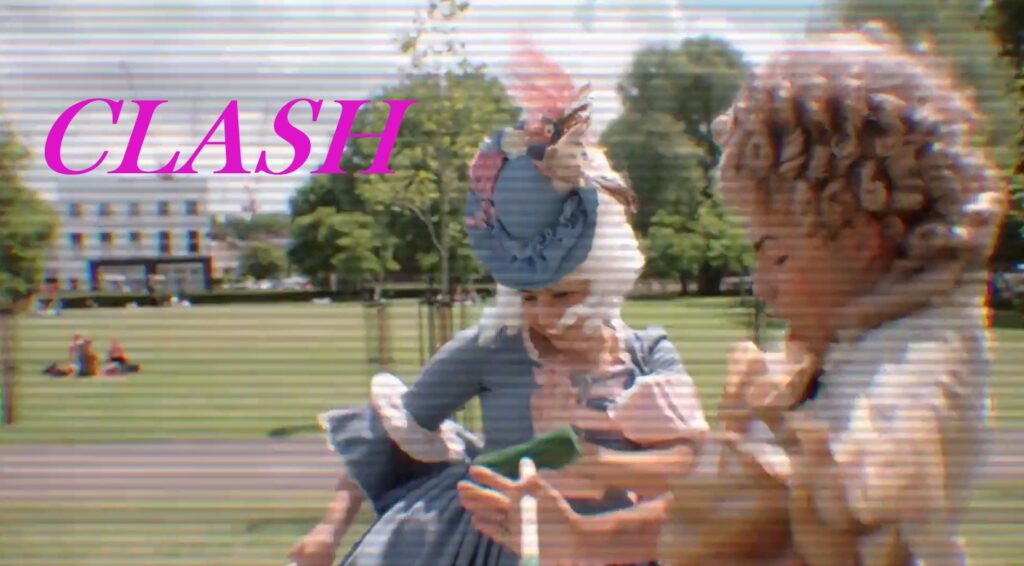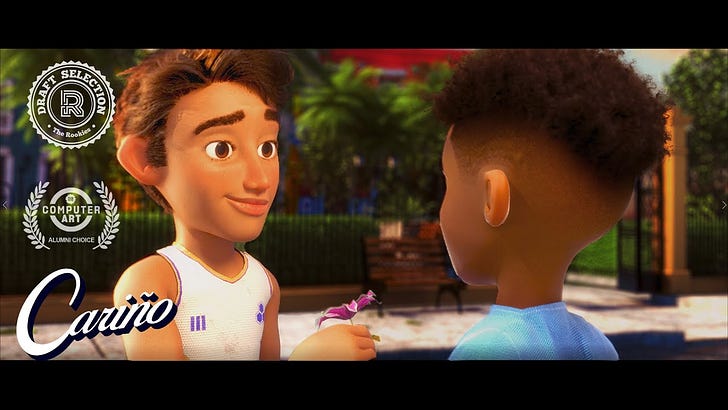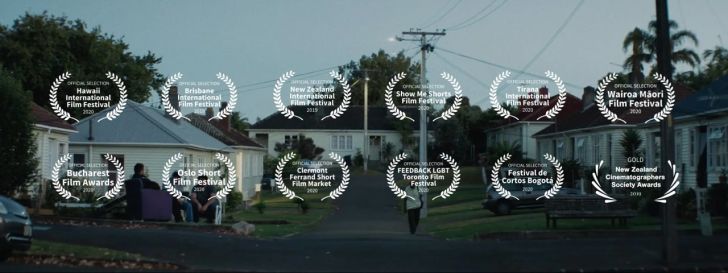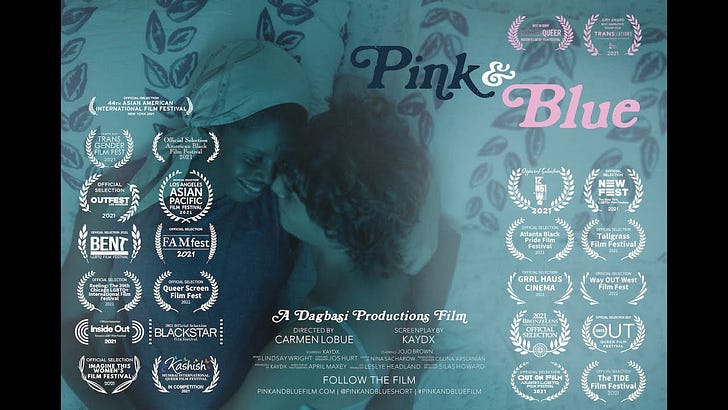Four queer short films are shapeshifting
This week’s theme came about very organically – I happened to watch three films I loved within a couple weeks of each other that all had shapeshifting characters. Only one of these films explicitly uses the character’s shapeshifting as a metaphor (for the characters transness, in that case), but I still think it’s a characteristic that fits very well with queer film – the elements of embodiment, magic, transformation, and ostracism for perceived monstruous-ness all ring very queer for me.
Over on deeper cuts, I finished up my series on genocide, climate injustice, and eco-colonialism in Palestine with a focus on Palestinian eco-resistance, and then this past weekend, on my two-year Long COVID anniversary, I wrote about how the COVID-19 pandemic isn’t actually over.
Today’s mutual aid request is for my good friend TK and their partner, a trans lesbian couple who don’t have access to a car right now and need help raising money for car repairs. They’re hoping to raise $850 USD. You can read more about what they need, or just send them what you can on Venmo, CashApp at $torkz428, or Paypal at torkz.
You can find content notes for the films at the very end of the post; see the full list of things I usually warn for. Also, I include pronouns for people mentioned when I can find them explicitly stated. When I cannot, I either use what I see being used for them in articles about them, or I just use their names.
Ur Aska | Of Aska, directed by Myra Hild, is a fantasy short film created by a team of students at The Animation Workshop/VIA University College in Viborg. Embla (Emei Olivia Burrell) and Aska (Kimiya Faghih) are a couple living happily in the woods and making their living by harvesting gems that grow on boulders on the hillside. But Aska’s body begins to change in unexpected ways, leading to a moment of truth for Embla. The story, art, and music all work perfectly together to tell a mysterious and succinct story.
Ur Aska | Of Aska
My Brother Is A Mermaid, written by Alfie Dale, Anna Chivers, and Cameron Glyde, and directed by Dale, tells the story of Kai (Cameron Maydale), a transfeminine nonbinary teen, through the eyes of Kai’s kid brother Kuda (Aidan Broderick). Kuda witnesses the transphobia that Kai faces – bullying by other teens in their neighborhood, lack of acceptance and understanding from their mother – and interprets it through a story Kai has told him about mermaids. The film doesn’t give us any easy answers – bright spots that develop in Kai’s life are unfortunately book-ended by continued struggles. But Kai and Kuda’s relationship is strong and beautiful, and even as a child, Kuda is able to support Kai in meaningful ways throughout.
Director Alfie Dale worked with the nonprofit Mermaids, which supports trans, nonbinary, and gender-diverse children in the United Kingdom, to shape the film, as well as taking the input of actor Cameron Maydale on portraying a trans teen. “A really interesting part of the whole process is how much I was involved and how much I was listened to,” Maydale said in an interview. “We managed to kind of create a universe which is reflective of the kinds of backgrounds which are most common for young trans people in modern day England that don’t have tens of thousands of pounds to spend on transition.”
My Brother Is A Mermaid
Aikāne, created by Dean Hamer and Joe Wilson and animated by Daniel Sousa, follows a warrior and his shape-shifting lover and advisor as they fight against white colonists threatening their land. The story is grounded in Native Hawai’an queer history; the title “aikāne” refers to same-gender relationships, both in real life and in Hawai’an mythology, such as the tale of Kāne and Kanaloa, the god of creation and freshwater and the god of the ocean.
The film was produced by Kānaka Maoli leader and activist Hinaleimoana Wong-Kalu (also known as Kuma Hina), who has previously collaborated with directors Dean Hamer and Joe Wilson on other films, including Kapaemāhū, which I’ve previously recommended. Kuma Hina named this film, noting, in an interview with them, “In traditional, pre-Western contact times, those relationships were quite common. Chiefly folk were especially noted to have intimate friends of the same sex within their retinue, within their midst, because they needed their close confidantes. They needed people who they could trust with their life, and they also needed support if they were not able to tend to an important matter. If their aikāne went on their behalf, it was sanctioned and accepted. That changed with Christianity. Christianity made relationships like that go the other way and be negative.”
Aikāne
Dracudate, directed by Rhael McGregor, is about Lilith, a trans lesbian vampire teenager going out to a fair with her crush Lou. However, Lilith has to try to evade Sal – a Monster Hunter who is determined to ruin their date – all without letting alerting Lou. When Lou catches on, she ends up being more supportive than Lilith expects – and for good reason. The film is short and incredibly sweet, and it will have you rooting for Lilith and Lou through its twists and turns.
Dracudate

